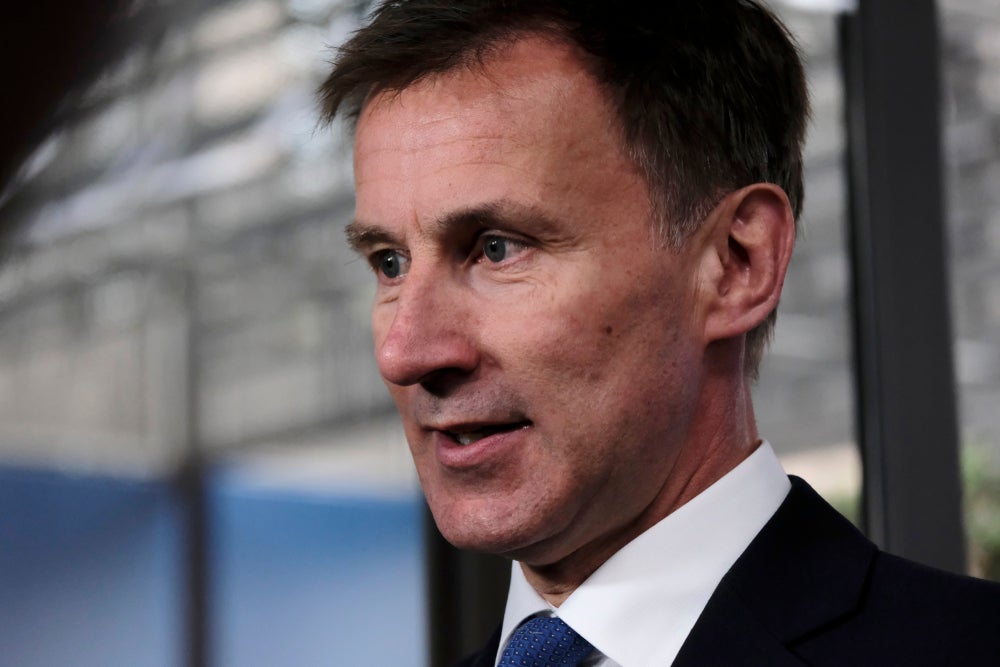
UK chancellor Jeremy Hunt has been under pressure from several different fronts in the past weeks and months in relation to his 2023 Autumn Statement. While several of his fellow Conservative MP’s voiced that the chancellor should aim to deliver tax cuts and ease the voters’ financial struggles, Hunt warned that the UK could not afford any tax cuts in the foreseeable future.
The Accountant and the International Accounting Bulletin have sought to collect as many impressions from the accountancy profession following Hunt’s statement. We will keep this updated as the profession offers more impressions.
Commenting on the Autumn Statement, AICPA & CIMA UK and Ireland vice president, Paul Turner, said: “There were some welcome policies announced in the autumn statement, especially making full expensing permanent to help businesses invest. Our members need to see this type of certainty so they can plan investments over for the long term.
“Extending research and development tax relief to more loss-making R&D intensive small and medium sized enterprises should also help incubate the innovative businesses which will power future growth.
“I was also pleased to hear that the government is putting extra money into apprenticeships. I hope this extra support extends to higher level apprenticeships, so we can develop the high-skilled and productive workforce our economy needs to thrive.”
Grant Thornton UK’s head of tax, Hazel Platt, further said: “The release of the latest inflation figures last week catalysed a rapid change in the government’s narrative. A week ago, tax cuts of any kind seemed unlikely – today’s Autumn Statement unveiled a smorgasbord of tax incentives and reductions. Alongside the halving of inflation, additional fiscal headroom provided by today’s OBR outlook handed the Chancellor an opportunity to hail an “Autumn Statement for Growth”. The Chancellor’s focus is now full steam ahead on growth driven firmly by business investment and stimulating employment.
How well do you really know your competitors?
Access the most comprehensive Company Profiles on the market, powered by GlobalData. Save hours of research. Gain competitive edge.

Thank you!
Your download email will arrive shortly
Not ready to buy yet? Download a free sample
We are confident about the unique quality of our Company Profiles. However, we want you to make the most beneficial decision for your business, so we offer a free sample that you can download by submitting the below form
By GlobalData“In support of business investment, the Chancellor made full expensing for relevant capital expenditure permanent, giving businesses tax relief at 25p for every pound spent. This change provides businesses with greater certainty and stability and should encourage further investment. He also confirmed the merging of the SME R&D Scheme with RDEC. This is a substantial reform with an ambitious implementation timetable, and there’s lots to work through in the details to understand who the “winners and losers” from this reform may be. Measures were also announced to introduce new Investment Zones and extend the tax relief timeframe from five to ten years (for investment zones and freeports).
“A key theme of the Statement was ‘making work pay’ with headline announcements on cuts to National Insurance with a 2-percentage point drop for employees (Class 1), abolition of Class 2 and reduction of Class 4 by 1 percentage point. It was encouraging to see an increase in the National Living Wage and further support for apprenticeships with an additional £50m announced to support skills development in key growth areas. Beyond the National Insurance support for the self-employed there were further measures to help small businesses including business rates support.”
Crowe UK partner, Stuart Weekes, commented: “The government has repeated its desire to tackle what it sees as unacceptably high levels of non-compliance with R&D reliefs. It will be interesting to see HMRC’s promised compliance action plan, but we are disappointed that the Chancellor did not announce an expansion of the existing restrictive advanced approval process to all companies. Obtaining prior approval that the R&D activity qualifies would reduce the barriers that uncertainty and cost represent for businesses claiming reliefs.”
Commenting on the statement, HW Fisher private client partner, Sam Dewes, said: “The mission of today’s Statement was to ‘take decisions for the long term’ – the reality is, today’s Statement focused on short-term tactical changes. Today, it was all about the next election. This could be the Chancellor’s last Statement ahead of a potential new Government in the year ahead and it’s clear that today’s changes have been made with that firmly in mind.
“We have seen headline grabbing business tax changes announced, and businesses across the UK will be celebrating (with a pint thanks to alcohol duty freezes) following the decision to make full expensing made permanent for UK plc.
“It’s interesting to see no mention of Inheritance Tax – something the Chancellor might be keeping up his sleeve as part of a ‘last hurrah’ as we head into election year.”
Adding to this, Employment Hero UK head of payroll, Suzanne Gallagher, said: “Accountants have been given a Christmas to-do list by the Chancellor today with urgent legislation to change National Insurance charges by January. NICs for employees are dropping from 12% to 10% – after rising as high as 13.25% last year and then being dropped back down – and this change is being implemented by urgent legislation out of cycle, to come into effect from January 6. This was quite a shift – not so long ago it seemed the Government was not going to implement any cuts. A 2% cut is higher than expected and will come into force sooner than expected. The self-employed are also getting a cut to their NICs after the Chancellor announced that the Class 2 National Insurance has now been abolished, which should save the average self-employed person £192 a year.”
“Implementing these changes out of cycle will make for a busy December for accountants, who might also be looking to sort out Christmas bonus payments and other end-of-year activities.”
“Accountants and payroll staff will need to implement these rate changes, make sure they can handle and advise on full expensing for later in the year, and get ready to implement boosts to the National Minimum Wage and Living Wage – including the change in the age requirement for the Living Wage.”
“Good cloud-based software should make implementing this to-do list very straight-forward. But some care is still necessary – particularly for employees with large salary sacrifice outgoings, as these can cause them to dip below the minimum wage.”
Outsourcing specialist firm AdvanceTrack’ MD of accounting and auditing, Vipul Sheth, said: “The Chancellor’s decision today to make permanent the “full expensing” tax break for businesses will be cautiously welcomed by the business community.
“It offers a continued incentive for investment, allowing companies to deduct spending on crucial assets from profits and ultimately reduce their corporate tax burden – particularly valuable to profitable businesses. That’s in addition to a valuable window for strategic tax planning, enabling businesses to optimise their investments and enhance cash flow.
“Businesses will be hoping it helps stimulate growth and job creation, however I would have liked to see him go even further and increase the allowance for Entrepreneurs’ Relief. It was previously unlimited, but successive Chancellors have reduced it to just £1m. Implementing any policy that does not encourage entrepreneurship will make the country poorer. Rather than a fat cat tax, the people who make use of it are predominantly small business owners, many of whom have worked for decades and come to sell their business at retirement.”






